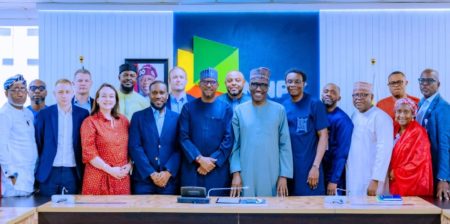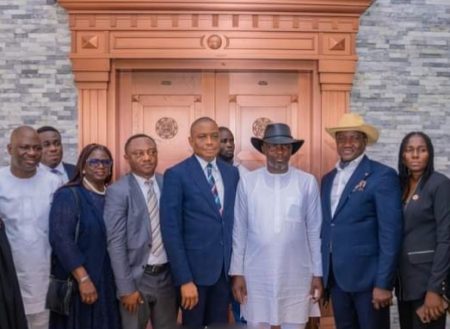ABUJA – The United States Government has promised to intensify its efforts to work with Nigeria to improve its energy supply by seeking innovative solutions to the power gridlock in the country, even as it has endorsed the on-going reform initiated by the Federal Government within the sector.
The United States Special Envoy and Coordinator for International Energy Affairs, Ambassador Carlos Pascual, who noted this on Tuesday at the 2nd Energy and Investment Working Group meeting, in Abuja, further emphasized the need for development of renewable energy to enhance the nation’s energy mix.
He noted that in order to address some of the most significant barriers to investment in the energy sector and to encourage the implementation of renewable energy solutions, the American government had awarded a grant to the Nigeria Electricity Regulatory Commission to develop a regulatory framework designed to provide investment incentives to independent power producers utilizing renewable energy resources in Nigeria.
Pascual explained that the focus of the partnership would be on five critical areas including energy reforms, long-term investment in the petroleum sector, the eradication of gas flaring, renewable energy and improved transparency in the nation’s energy industry.
He noted that Nigeria’s economic growth is constrained by insufficient electricity generation capacity which results in a lack of sufficient, reliable and affordable power supply.
“The Nigerian power sector has operated largely under a vertically integrated inefficient monopoly. The insufficient generation and supply of electricity is caused by low and unsustainable investments by the government over the years.
“The situation has resulted into business leakages where indigenous and foreign companies have relocated to Neighbouring countries as the cost of doing business in Nigeria was no longer profitable.”
“The United States government has noted the impressive efforts of the Nigerian government to implement reform in the energy industry, and we want to assure of our cooperation to deepen and broaden such reform that would enhance the opportunities within the industry and enable the country maximize its resources for the benefit of the citizens.
“We equally recognize the importance of working with the Ministry of Petroleum Resources to create a platform for increased long-term investments in the petroleum sector, especially in the face of increasing demand for energy across the world.”
He observed that with the expansion of global economies, especially of countries like India, China and Brazil, there was every possibility of greater demand for energy, adding that Nigeria, as one of the biggest producers of petroleum resources globally, has a large role to play in ensuring that this demand is met.
He noted, however, that more work was required on the Nigerian end to enhance investor confidence in the industry by reforming its policies to ensure certainty and clarity in matters relating to contracts and security of investment, among other issues.
Pascual further noted that the United States was willing to support the nation in its quest to eliminate gas flaring or reduce it to the barest minimum, pointing out that reducing the excessive amount of gas flared in the country would do a lot to improve power as the gas saved from flaring could be channeled for use at the power plants.
“Nigeria flares gas which could be used to produce electricity and significantly reduce the emissions of greenhouse gas and mitigate climate change,” he stated.
Speaking earlier, Permanent Secretary in the Ministry of Petroleum Resources and Head of Nigeria’s delegation to the Commission, Engr. Goni Sheikh lauded the support of the United States to Nigeria, and stressed that Nigeria was in the process of reforming the energy sector towards ensuring sustainable economic growth.
Sheikh noted that the economy can only be “driven through industrialization, and this is becoming increasingly difficult because of our power challenge in Nigeria.”
He assured the Americans that, “Nigeria is ready to provide all the necessary guarantees and support to investors and partners towards ensuring the establishment of an improved regulatory framework as well as boosting power supply in the country.”
“Power challenge is at the heart of the matter and if that is effectively addressed, other things in the economic development jigsaw will certainly fall into place.”
Participants at the meeting include the US Assistant Secretary for Policy and International Affairs, Mr. David Sandalow, with representatives of the American Embassy, as well as officials Ministry of Petroleum Resources, Ministry of Power, the Nigeria Investment Promotion Commission, The Nigeria Extractive Industry Transparency Initiative (NEITI), the Nigerian Energy Commission, among others, later went into a closed door session to deliberate further.




